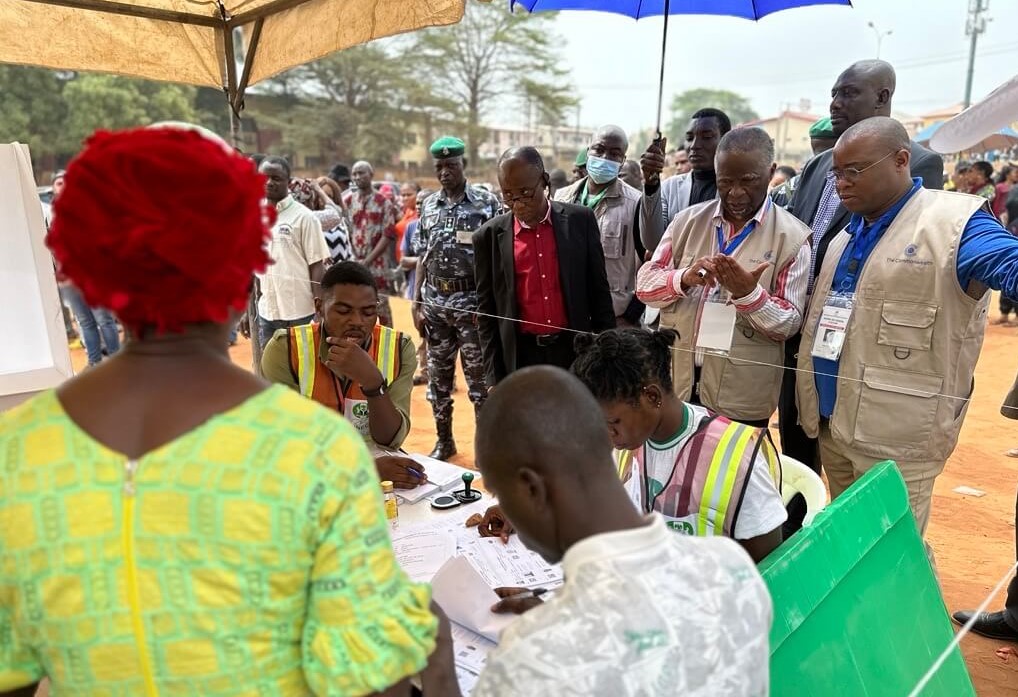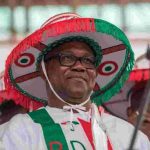On presidential election day, February 25, there were reports of voter intimidation, thuggery, ballot box snatching and killings in some states like Lagos, Enugu, Rivers, and Kogi.
At the end of the voting exercise, officials of the Independent National Electoral Commission (INEC) in most parts of the country failed to upload the election results to INEC’s result viewing portal, the iREV.
While INEC complained that the failure was due to glitches and network failure, voters and opposition parties have alleged that it was a deliberate effort to create room for manipulation and rigging in favour of the ruling All Progressives Congress or APC.
The outcome of the election is still being contested, especially by the Labour Party, even as results are being collated and announced at the International Conference Center in Abuja, the nation’s capital.
However, despite reported evidence of violence and voter intimidation, especially in southern Nigeria, the Commonwealth Observer Group has maintained that the election was “largely peaceful” and “Nigerians were largely accorded the right to vote.”
“We congratulate all Nigerians for their determination, patience and resilience displayed throughout the electoral process.,” said Thabo Mbeki, former South African president and chairman of the group, in a press statement sent to one of Prime Progress’ editors today, February 27.
But he acknowledged the technical and logistical challenges, calling for calm and due process.
“We call on all those with grievances to address disputes through prescribed legal channels,” Mbeki said. “The time now is for restraint and continued patience as we await the final results.”
On the one hand, Mbeki praised the polling officials for conducting their duties “diligently”; on the other hand, he noted some inconsistencies in procedures, particularly in the positioning of some polling booths, which compromised the secrecy of the ballot and lack of advance voting for those deployed on election day.
He said as voting hours extended into the night due to late openings, some polling units were ill-equipped with proper lighting to facilitate voting and counting in the dark.
Based on the challenges, Mbeki urged the electoral commission to conduct a thorough post-election review of the electoral process to draw lessons and consider setting up appropriate mechanisms to implement observers’ recommendations.
He said there is an improvement with enacting a new Electoral Act in 2022, which gave the electoral commission more autonomy, legal backing for the use of electronic accreditation of voters and frameworks for the inclusion of people with disabilities in the elections, among other things.
He also commended the commitment shown by voters, despite the late arrival of election officials and materials at many polling units, technical issues with biometric identification machines in some cases, and delays with the live results transmission system.
The group said though the percentage of women candidates was low, it was impressed by the “vibrant participation” of young people, including polling officials, in the elections.
Commonwealth observers were in Abuja, the capital, and seven states, Rivers and Lagos, where widespread intimidation, thuggery and violence were reported by independent local observers.
The press statement was called to explain the group’s preliminary election assessment report.
The presidential election in Nigeria on February 25 encountered significant issues, including voter intimidation, thuggery, ballot box snatching, and even killings in states like Lagos, Enugu, Rivers, and Kogi. Despite the voting process, many officials from the Independent National Electoral Commission (INEC) failed to upload results to the iREV portal, which INEC attributed to technical glitches. However, opposition parties suspected it was a deliberate move to manipulate the election in favor of the ruling party, APC.
The Labour Party is notably contesting the election results as they are being tallied in Abuja. Despite reports of violence and voter intimidation, the Commonwealth Observer Group deemed the election "largely peaceful," advising aggrieved parties to seek legal redress. Thabo Mbeki, the group's chairman, acknowledged the challenges and called for calm and patience while awaiting final results.
He pointed out inconsistencies in procedures and inadequacies at some polling stations, such as improper lighting. Mbeki recommended a thorough post-election review by the electoral commission. He noted the improvements brought by the 2022 Electoral Act, including enhanced autonomy for the electoral commission and provisions for electronic voter accreditation.
The Commonwealth Group also praised the commitment and resilience of voters and the vibrant participation of young people, despite logistical and technical challenges. Their preliminary assessment covers observations from various locales, including areas reporting significant violence and intimidation.






